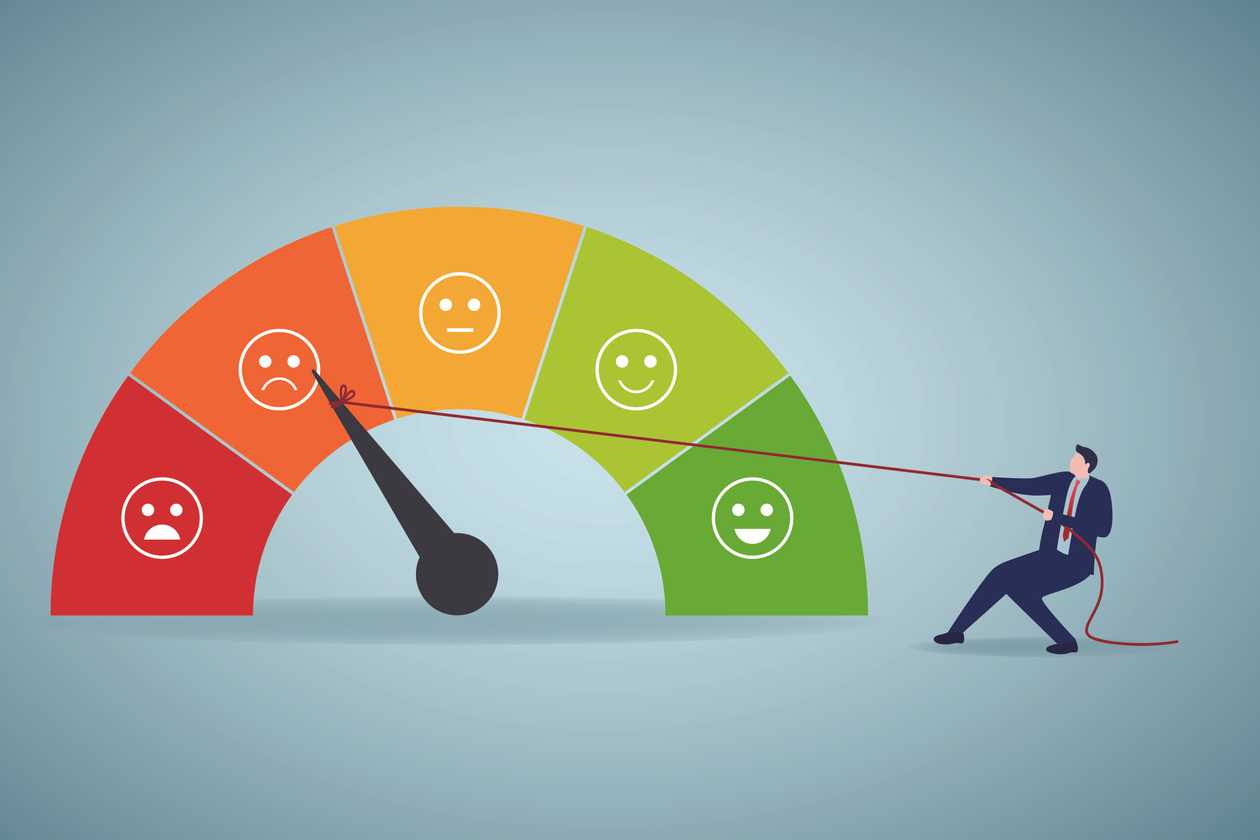Home>Finance>How Much Will Credit Score Go Up After Paying Off Mortgage


Finance
How Much Will Credit Score Go Up After Paying Off Mortgage
Published: October 21, 2023
Find out how paying off your mortgage can impact your credit score. Discover how much your credit score may increase with this finance guide.
(Many of the links in this article redirect to a specific reviewed product. Your purchase of these products through affiliate links helps to generate commission for LiveWell, at no extra cost. Learn more)
Table of Contents
Introduction
When it comes to managing your finances, your credit score plays a vital role. A good credit score opens doors to better interest rates, increased purchasing power, and favorable loan terms. One significant factor that affects your credit score is your mortgage payment. Paying off your mortgage not only relieves financial burden but can also have a positive impact on your credit score.
In this article, we will explore the connection between paying off your mortgage and credit score improvement. We will discuss the factors that influence this increase, how much your credit score can potentially rise, and other benefits of paying off your mortgage.
Understanding how your mortgage payment affects your credit score is crucial for financial planning. By having a clear understanding of the impact, you can make informed decisions about your mortgage and effectively manage your credit health. So, let’s dive in and uncover the relationship between paying off your mortgage and the potential increase in your credit score.
Understanding Credit Scores
Before we delve into the impact of mortgage payments on credit scores, it’s essential to have a basic understanding of credit scores. A credit score is a numerical representation of your creditworthiness, which lenders use to assess your ability to repay debts.
The most widely used credit scoring model is the FICO score, which ranges from 300 to 850. A higher credit score indicates a lower credit risk, making you more attractive to lenders and creditors.
Credit scores are determined based on various factors, including:
- Payment history: This accounts for the largest portion of your credit score and reflects whether you make timely payments on your debts.
- Credit utilization: This factor considers the amount of credit you are using compared to your total available credit. It’s advisable to keep your credit utilization below 30%.
- Length of credit history: The length of time you’ve had credit accounts impacts your credit score. Generally, a longer credit history is seen as more favorable.
- Credit mix: Having a mix of different types of credit, such as credit cards, mortgages, and loans, can positively impact your credit score.
- New credit applications: Opening multiple new credit accounts within a short period can be seen as a red flag and may lower your credit score.
Now that we have a foundation of credit scoring, let’s explore how mortgage payments influence your credit score.
Impact of Mortgage Payments on Credit Scores
Mortgage payments have a significant impact on your credit score. Your mortgage is likely one of the largest debts you have, and making consistent payments can demonstrate to lenders that you are a responsible borrower. Here are a few ways in which mortgage payments can affect your credit score:
- Payment history: Your mortgage payment history is reported to credit bureaus, and making on-time payments consistently can have a positive impact on your credit score. Late or missed payments, on the other hand, can significantly lower your score.
- Credit utilization: As you pay down your mortgage balance, your overall debt decreases. This can lower your credit utilization ratio, which is the amount of credit you are using compared to your total available credit. A lower credit utilization ratio is generally seen as favorable and can improve your credit score.
- Length of credit history: The length of time you’ve had your mortgage account contributes to the length of your credit history. A longer credit history can positively impact your credit score, so consistently making mortgage payments over a prolonged period can be beneficial.
- Credit mix: Having a mortgage in your credit mix can also boost your credit score. It shows that you can manage different types of credit responsibly.
It’s important to note that the impact of mortgage payments on your credit score may vary depending on your overall credit profile. If you have a limited credit history or other negative factors, the positive impact of mortgage payments may be less significant. However, consistently making mortgage payments on time is generally seen as a positive indicator of creditworthiness.
In the next section, we will explore the factors that can influence the increase in your credit score after paying off your mortgage.
Factors That Affect the Increase in Credit Scores
While paying off your mortgage can have a positive impact on your credit score, the actual increase will depend on several factors. Here are some key factors that can influence the extent to which your credit score may rise after paying off your mortgage:
- Credit history: The length of your credit history plays a significant role. If you’ve had a mortgage for many years and have a long and positive credit history, paying off your mortgage can potentially result in a more substantial increase in your credit score.
- Payment history: Consistently making on-time mortgage payments throughout the life of the loan can significantly boost your credit score. If you have a track record of responsible payment behavior, it may lead to a larger credit score increase once the mortgage is paid off.
- Credit utilization: As mentioned earlier, paying off your mortgage reduces your overall debt and can improve your credit utilization ratio. Maintaining a low credit utilization ratio is key to a higher credit score, so paying off a significant debt like a mortgage can positively impact this factor.
- Credit mix: If your credit mix consists primarily of installment loans, such as a mortgage and a car loan, paying off your mortgage can potentially improve your credit score. Lenders like to see a diverse mix of credit types to demonstrate responsible borrowing behavior.
- New credit: Taking on new credit immediately after paying off your mortgage may offset some of the positive effects on your credit score. Opening new credit accounts can temporarily lower your score due to the added inquiries and potential impact on your credit utilization.
While these factors can influence the increase in your credit score, it’s important to note that credit scoring models are complex and consider a multitude of other factors as well. The actual credit score increase after paying off your mortgage may vary depending on your unique credit profile.
Next, let’s examine how much your credit score can potentially increase after paying off your mortgage.
How Much Credit Score Increases After Paying Off Mortgage
The exact increase in your credit score after paying off your mortgage will depend on various factors, including your credit history, payment history, and overall credit profile. While it can be challenging to predict the exact number, paying off your mortgage is generally considered a positive factor for credit scores.
In some cases, paying off your mortgage can lead to a noticeable increase in your credit score. For example, if you have a high credit utilization ratio or a limited credit history, paying off a large debt like a mortgage can have a significant impact on your credit score.
However, if you already have a strong credit score and a long credit history, the impact of paying off your mortgage may be less pronounced. It’s important to remember that credit scores are a complex calculation that takes multiple factors into account, so the increase in your credit score may not be solely attributed to paying off your mortgage.
Additionally, it’s worth noting that credit score changes are not instantaneous. It may take some time for the credit reporting agencies to update your credit report and reflect the paid-off mortgage. As a result, you may not see an immediate increase in your credit score, but rather a gradual improvement over time.
Overall, while paying off your mortgage can potentially lead to an increase in your credit score, it’s crucial to maintain other healthy credit habits, such as making timely payments on other debts and keeping credit utilization low, to maintain a strong credit profile.
Next, let’s explore some other benefits of paying off your mortgage.
Other Benefits of Paying Off Mortgage
Aside from the potential increase in your credit score, there are several other benefits to paying off your mortgage. These benefits can have a significant impact on your overall financial well-being. Here are a few advantages of paying off your mortgage:
- Financial freedom: Paying off your mortgage frees up a significant portion of your monthly budget. Without the burden of mortgage payments, you can allocate those funds towards other financial goals, such as saving for retirement, investing, or paying off other debts.
- Interest savings: By paying off your mortgage early, you can potentially save thousands of dollars in interest payments over the life of the loan. This can translate into significant savings and allow you to redirect those funds towards other financial endeavors.
- Peace of mind: Being mortgage-free provides a sense of security and peace of mind. You no longer have to worry about the risk of foreclosure or the financial stress of meeting monthly mortgage obligations. This freedom can greatly reduce financial stress and improve your quality of life.
- Property ownership: Paying off your mortgage means you fully own your home. This can provide a sense of pride and stability, as well as the option to use your home equity for future financial needs, such as obtaining a home equity loan or line of credit.
- Increased cash flow in retirement: For those approaching retirement, paying off your mortgage before retiring can significantly reduce your monthly expenses. This can make your retirement savings stretch further and provide a more comfortable and financially secure retirement.
It’s essential to consider these benefits and carefully evaluate your financial situation before deciding to pay off your mortgage early. While there are advantages, it’s crucial to ensure you have a solid emergency fund, have paid off higher-interest debts, and have enough liquidity for future financial needs.
Next, let’s explore some tips for maximizing the credit score increase when paying off your mortgage.
Tips for Maximizing Credit Score Increase
If you’re aiming to maximize the credit score increase when paying off your mortgage, here are some helpful tips to consider:
- Keep other credit accounts in good standing: While paying off your mortgage can positively impact your credit score, it’s crucial to maintain responsible credit habits with other accounts. Continue making timely payments on credit cards, loans, and other debts to demonstrate your overall creditworthiness.
- Diversify your credit mix: If you don’t have other types of credit accounts, such as credit cards or installment loans, consider obtaining a small credit card or personal loan to diversify your credit mix. This can help improve your credit score over time.
- Monitor your credit report regularly: Regularly check your credit report for inaccuracies or discrepancies. Address any errors promptly by contacting the credit bureaus to ensure that your credit score accurately reflects your financial behavior, including the paid-off mortgage.
- Don’t close old credit accounts: Closing old credit accounts can potentially lower your credit score by shortening your credit history. If you have old accounts with a positive payment history, consider keeping them open to maintain a longer credit history and potentially a higher credit score.
- Manage credit utilization: Even after paying off your mortgage, it’s essential to keep your credit utilization ratio low. Aim to keep your credit card balances below 30% of their limits to maintain a healthy credit utilization ratio and positively impact your credit score.
By following these tips, you can maximize the benefits of paying off your mortgage on your credit score. However, it’s important to remember that improving and maintaining a strong credit score requires consistent effort and responsible financial behavior.
Before making any decisions regarding your mortgage or credit, it’s always a good idea to consult with a financial advisor who can provide personalized guidance based on your specific situation.
Let’s conclude our discussion on the impact of paying off your mortgage on your credit score.
Conclusion
Paying off your mortgage can have a positive impact on your credit score and provide various financial benefits. While the exact increase in your credit score may vary depending on factors such as credit history, payment history, and credit utilization, consistently making mortgage payments on time and reducing your overall debt can lead to a healthier credit profile.
Aside from the credit score boost, paying off your mortgage can provide financial freedom, interest savings, and peace of mind. It allows you to allocate funds towards other financial goals, reduces the risk of foreclosure, and gives you the satisfaction of fully owning your home.
To maximize the credit score increase, it’s important to maintain responsible credit habits, keep other credit accounts in good standing, and diversify your credit mix. Regularly monitoring your credit report and addressing any errors is also crucial for maintaining an accurate credit score.
Ultimately, paying off your mortgage is a significant financial milestone. It’s important to carefully evaluate your financial situation and consider the potential benefits and trade-offs before making a decision. Consulting with a financial advisor can provide valuable insight and guidance tailored to your specific needs.
Remember, improving and maintaining a strong credit score is a continuous process that requires responsible financial behavior. By managing your credit wisely and taking steps to pay off your mortgage and other debts, you can achieve a better financial future.
So, whether you’re considering paying off your mortgage early or diligently making monthly payments, understanding the impact on your credit score and the other advantages can help you make informed decisions and attain your financial goals.














